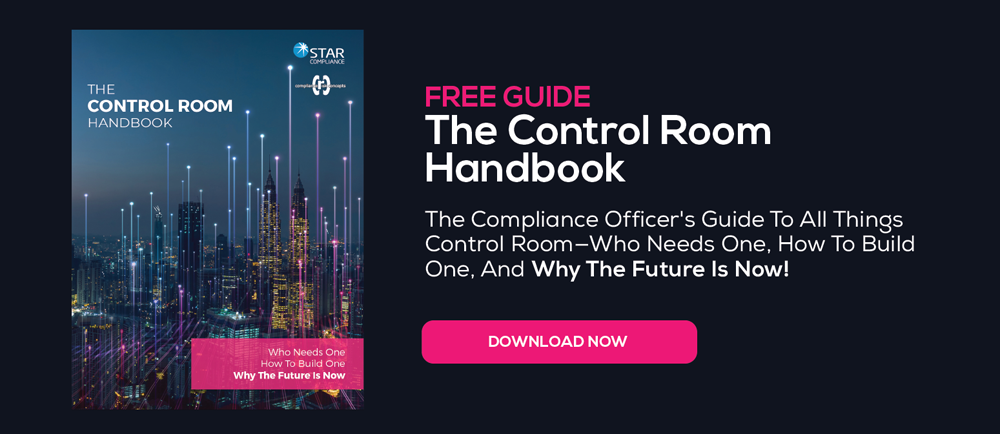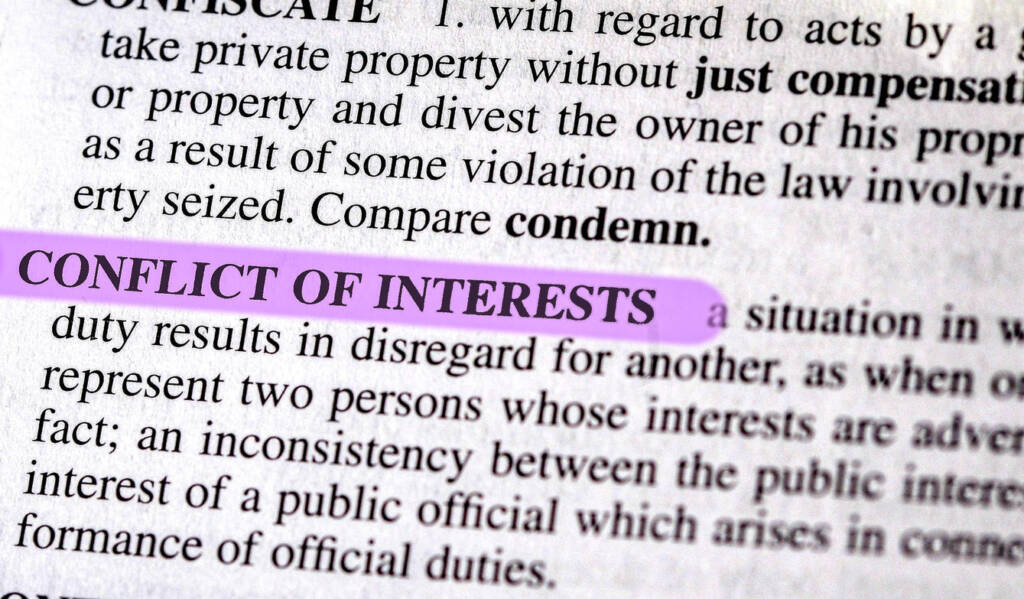Adopting A Hybrid Work Model? Keep 3 Things In Mind To Protect MNPI
Control room officers must keep MNPI in all the right places, no matter where monitored employees are working from. Star control room veteran Steve Brown discusses three areas control room officers should keep top-of-mind in this regard
Material non-public information, or MNPI, is slippery and tricky enough to keep properly channeled and locked down when everyone is in the office. For the past year and a half, with so many in finance working remotely, control rooms across the world figured out ways to successfully track MNPI and keep firm risk at a minimum: without the physical confines of the office or the decades’ worth of proven compliance policies and procedures that make the job easier. Now finance is on the verge of yet another seeming sea change in the world of monitored employees. Say hello to hybrid work: a mix of onsite and offsite work that will be just different enough from fully onsite to potentially throw off the quickly crafted—but by now fully honed—compliance policies and procedures that kept MNPI precisely where it was supposed to be.
Star’s Head of Business Development and longtime control room veteran Steve Brown understands this challenge. Following are three of his control room conflict considerations to keep top-of-mind as we all continue to wait and see what the pandemic has in store for the world of financial services and the people who work in it.
1. BEING SMART MEANS BEING FLEXIBLE
There’s a tendency in every profession to want to try and find the single jack-of-all-trades solution that can be applied across the board. It’s human nature. You want to solve your problem as quickly and comprehensively as possible, and as easily as possible. You want to get your solution in place and get things on track. Pronto. But it should be remembered that complex problems typically require complex solutions: particularly when it comes to reliably tracking and tracing conflicts and MNPI across a “firm” that’s now far more virtual than actual, i.e., with monitored employees working onsite, offsite, or perhaps a little of both.
“In the best of times,” offers Brown, “firms face tough challenges crafting control room solutions to protect their employees while safeguarding client information. These have not been the best of times. And just when we thought it was going to be safe to return to the office, at least to some extent, the coronavirus has thrown the financial services world a curveball in the form of the Delta variant. It’s hard to say exactly what will come next in terms of where your employees will be working from, but any planning you do to monitor for MNPI should take into account the fact that not all situations are created equal. Firms may need to develop different policies and procedures for tracking MNPI for different parts of the business. Lending may need one methodology, investment banking another, and trading and research each their own. As we move further into the unknown in these next few months, when it comes to conflicts and managing MNPI being smart means being flexible.”
2. HOME IS THE FOURTH DIMENSION
When it comes to conflict and MNPI considerations, control room officers typically think in three dimensions: firm, clients, and employees. With the onset of the coronavirus pandemic—along with, to put it mildly, the novel realities it posed—control room officers began thinking of conflicts in a fourth dimension: working from home.
Brown: “Initially, with employees working from home, firms needed to consider exactly what that meant for existing conflict and MNPI policies and procedures. Maybe employees were sharing space with family members (e.g., spouses, parents, siblings), friends, or existing roommates who may work for other financial services firms or public companies. In these kinds of situations, overhearing or seeing MNPI was certainly possible, and still is. Now, as firms struggle to determine how to manage the Delta variant, and decide whether to bring employees back into the office or allow for a hybrid approach, it’s wise for firms to revisit and possibly refresh policies and procedures initially put into place at the start of the pandemic. Beyond regulatory licensing reporting reasons, firms should consider if additional compliance risks apply that didn’t during the initial phase of the pandemic. It would be wise to update operational resiliency and compliance risk assessment programs, and determine if new conflict or MNPI risks have evolved and then update policies, procedures, and controls accordingly.”
3. TIME TO THINK OF EVERYTHING
If home is now the fourth dimension—and control room officers must keep it top-of-mind when it comes to controlling conflicts, tracking MNPI, and keeping firm risk at a minimum—what do you do about it? What’s next?
Brown: “It’s times like these you have to understand that workflows that were once novel—created in a rush to get deals and trades done in an unprecedented situation—may have to continue to evolve. Control rooms should assess them to identify new potential policy gaps, new procedure gaps, or emerging risk. In that spirit, here’s a starter list of questions designed to get you thinking about ways to manage conflicts and MNPI moving forward.”
Should firms:
- Collect information about employees’ roommates or parents (e.g., their employers, personal holdings, or financial support)?
- Consider whether employees have a dedicated private space to work within the home?
- Adjust their annual compliance questionnaires to take these situations/relationships into consideration?
- Monitor trading in companies where roommates or parents work?
- Place roommates’ or parents’ companies on the firm’s Conflict or Watch List?
- Adjust their conflict clearance and deal team staffing processes to consider these new relationships?
- Attempt to obtain trading information from roommates or parents?
- Provide MNPI training information for the roommates?
- Make inquiries regarding the types of hardware (e.g., devices or tablets) employees are using to do their jobs?
- Consider new disclosures surrounding these novel work arrangements that need to be presented in marketing materials, engagement letters, etc.?
- Think about how to respond to regulatory inquiries as a result of employees working from home?
- Consider bringing employees that have access to MNPI back to the office first, if and when there is a return to the office?
- Consider whether they have the right regtech in place to confidently say they’re doing everything reasonably possible to protect and track MNPI?
“Some of these considerations may seem draconian,” says Brown, “but as remote working has become more business-as-usual than anyone in finance could have ever imagined pre-COVID, it’s important to consider ways to manage risks. That’s why it’s imperative control rooms understand the workflows that have evolved in order to understand potential new conflicts or MNPI situations. Then, they must determine what makes sense to meet the demands of the hybrid workspace—all in an increasingly complex deal and regulatory environment—whether it’s new policies, procedures, training, or software solutions. Here at Star, we’re ready to assist.”




